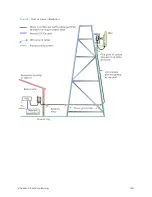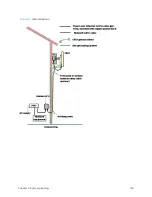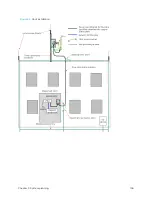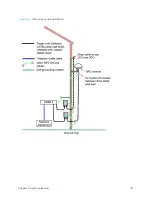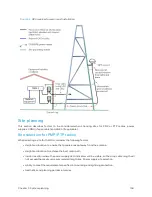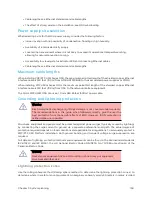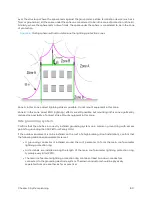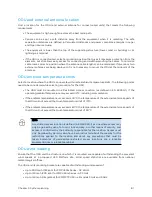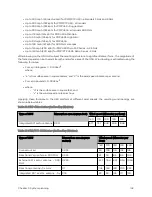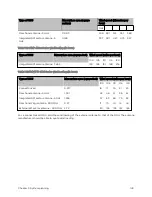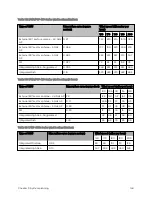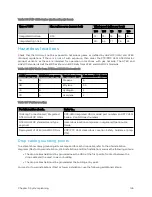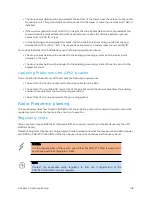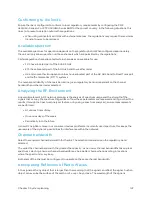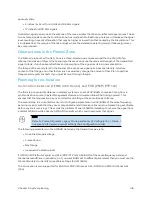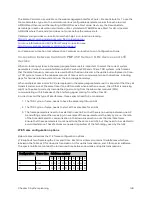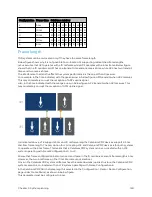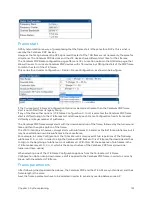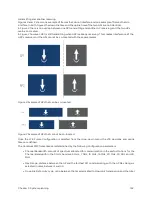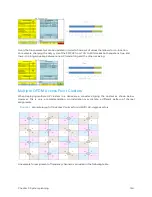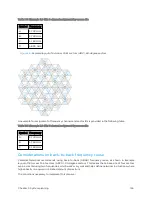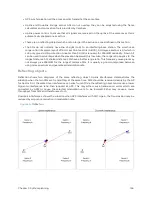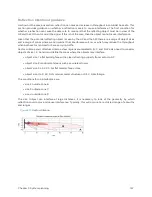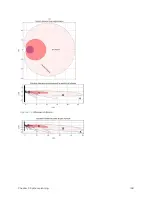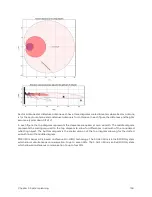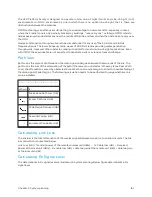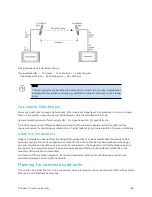
Chapter 3: System planning
147
Conf or m ing t o t he lim it s
Ensure the link is configured to conform to local regulatory requirements by configuring the PMP
450/450i Series AP or PTP 450/450i Series BHM for the correct country. In the following situations, this
does not prevent operation outside the regulations:
l
When using connectorized ODUs with external antennas, the regulations may require the maximum
transmit power to be reduced.
A vailab le sp ect r um
The available spectrum for operation depends on the regulatory band. When configured appropriately,
the unit will only allow operation on those channels which are permitted by the regulations.
Certain regulations have allocated certain channels as unavailable for use:
l
FCC has allocated part of the 5.1 & 5.2 GHz
l
ETSI has allocated part of the 5.4 GHz band to weather radar.
l
UK and some other European countries have allocated part of the 5.8 GHz band to Road Transport
and Traffic Telematics (RTTT) systems.
The number and identity of channels barred in a given regulatory band is dependent on the channel
bandwidth and channel raster selected.
A nalyzing t he RF Envir onm ent
An essential element in RF network planning is the analysis of spectrum usage and the strength of the
signals that occupy the spectrum. Regardless of how these parameters are measured and log or chart the
results (through the Spectrum Analyzer feature or by using a spectrum analyzer), ensure measurements
are performed:
l
At various times of day.
l
On various days of the week.
l
Periodically into the future.
As new RF neighbors move in or consumer devices proliferate in currently used spectrum, this keeps the
user aware of the dynamic possibilities for interference within the network.
Channel b and w id t h
Select the required channel bandwidth for the link. The selection depends upon the regulatory band
selected.
The wider the channel bandwidth, the greater the capacity. As narrower channel bandwidths take up less
spectrum, selecting a narrow channel bandwidth may be a better choice when operating in locations
where the spectrum is very busy.
Both ends of the link must be configured to operate on the same channel bandwidth.
A nt icip at ing Ref lect ion of Rad io W aves
In the signal path, any object that is larger than the wavelength of the signal can reflect the signal. Such an
object can even be the surface of the earth or of a river, bay or lake. The wavelength of the signal is
Summary of Contents for PMP 450 Series
Page 92: ...Chapter 2 System hardware 92 Figure 29 MicroPoP Omni antenna implementation pattern Vertical...
Page 134: ...Chapter 3 System planning 134 Figure 51 Mast or tower installation...
Page 135: ...Chapter 3 System planning 135 Figure 52 Wall installation...
Page 136: ...Chapter 3 System planning 136 Figure 53 Roof installation...
Page 137: ...Chapter 3 System planning 137 Figure 54 GPS receiver wall installation...
Page 158: ...Chapter 3 System planning 158 Figure 61 cnMedusa Antenna...


